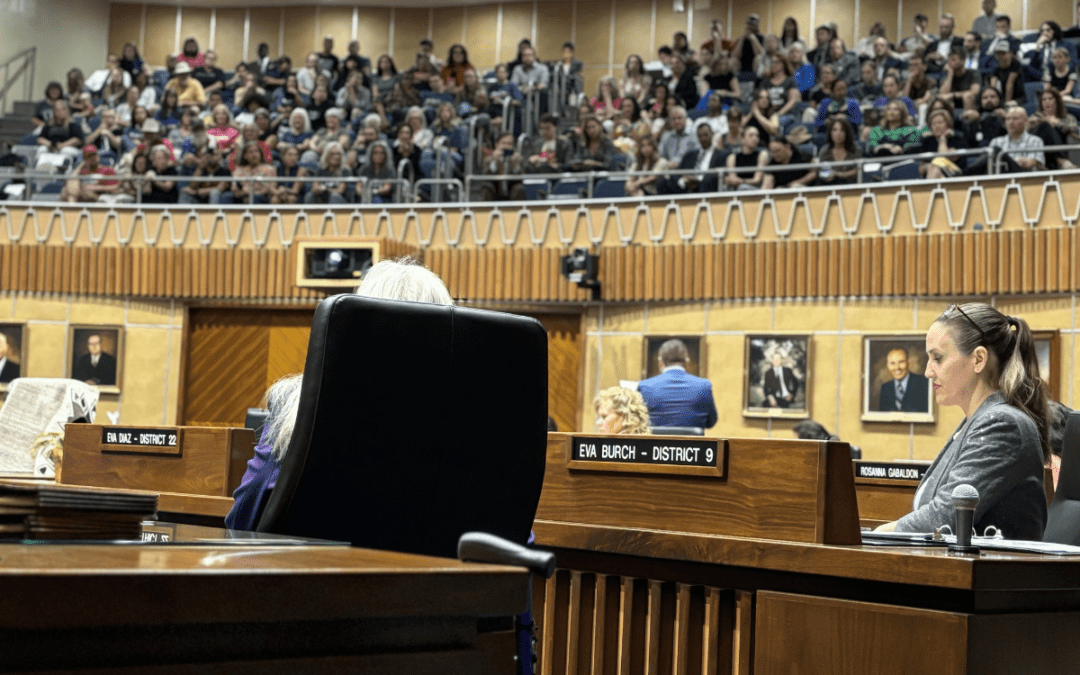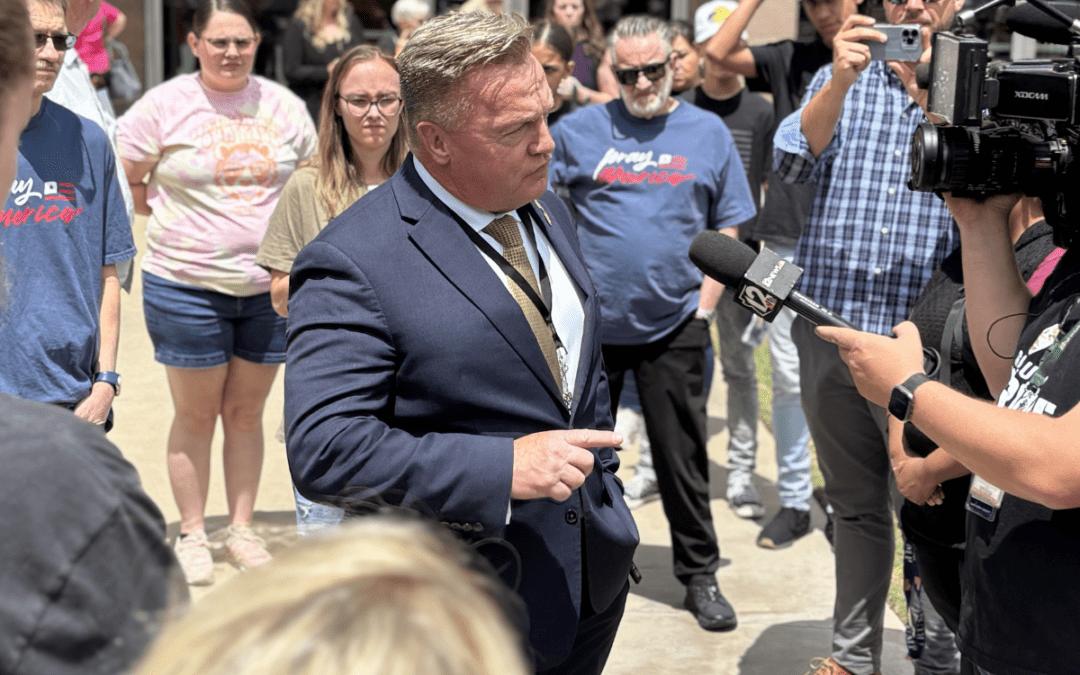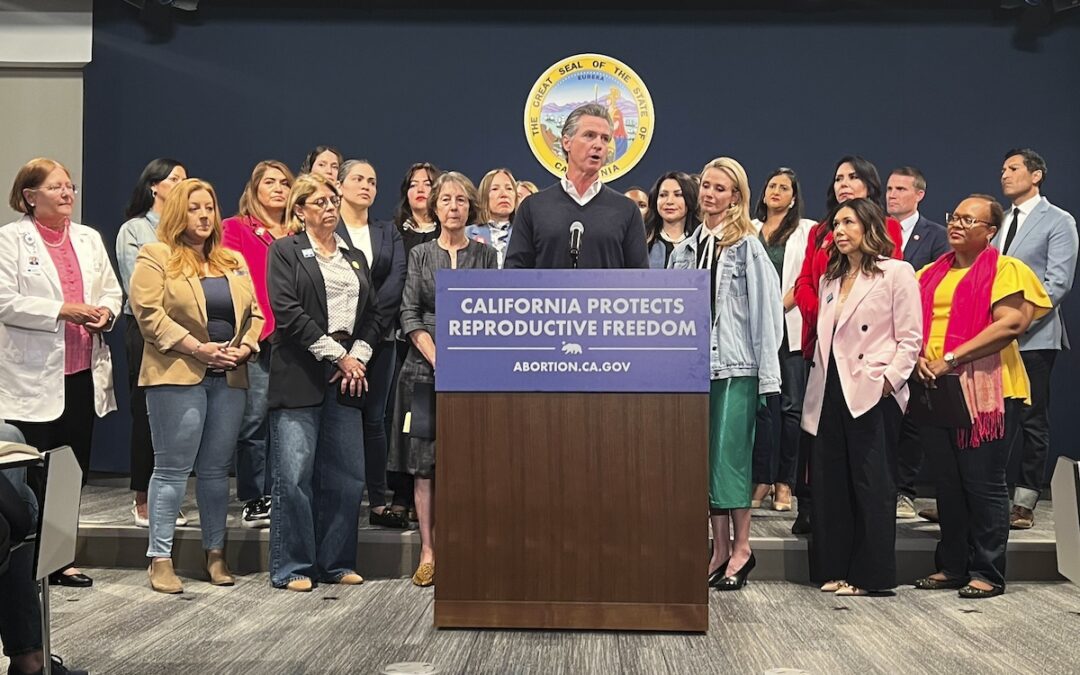
Lorena Austin, candidate for Arizona House in LD 9. (Photo courtesy of Lorena Austin's campaign)
“We simply just don’t have enough housing for our residents.”
Lorena Austin says her family has a long history—five generations worth—in Mesa.
But when she was younger, Austin lived with her mother for a time in California’s Section 8 housing.
Austin later returned to Arizona and graduated from Mesa Community College, where she was student body president, and then from Arizona State University.
Now she’s running for Arizona House as a Democrat in Legislative District 9, which covers parts of Mesa and Tempe.
The Copper Courier spoke with Austin about rising costs of living in Mesa and the rest of the state— especially when it comes to housing— as well as the minimum wage and unemployment.
Note: This interview has been edited for length and clarity.
The Copper Courier:
Are there any specific policies around housing that you would like to see the Legislature implement?
Lorena Austin:
For background, I come from a community that’s really hurting with housing right now. So I knock on doors every day, and I talk to people who are having to move to different states—and they don’t want to, but their rents are going up like $500-$600 in one year. It’s just an astronomical increase.
There are some anti-price gouging laws that we could look at that could limit rent increases. I know California had an example of it, and it limited the rent increase to 5% plus inflation. I get that it doesn’t fix everything, but there is a huge difference between 13% versus 40%.
I am also interested in cracking down more on private investors from scooping up residential housing and then selling it for… top dollars, or just making it Airbnb rentals or short-term rentals. [Also,] simplifying the zoning for builders, and to discourage some of the local pushback on multi-unit affordable developments.
RELATED: Maricopa County Evictions Highest They’ve Been in 13 Years
We could be better about running information in terms of eviction for people, letting them know more about the American Rescue Plan. We’re a pretty landlord-friendly state, and I would love it to be more renter-friendly or tenant-friendly.
We could establish right to counsel for those that are facing eviction. We could mandate that if you’re getting evicted, there’s resources on [notices] for free or low-cost legal aid. And then also, if you’re going to evict someone for cosmetic purposes or anything like that, then maybe providing rental assistance for a month or so. I think there needs to be some creative solutions and I think there is a lot that can be done.
CC:
Why do you think these policies haven’t been taken up by the Arizona Legislature yet?
LA:
I think it hasn’t been taken up because I think it combines a lot of profits for other people to line their pockets with. And I think a lot of people maybe don’t understand.
I think my biggest thing is, I would like representation of the Legislature [to be] people who are actually from our communities and completely understand some of the things they go through. Growing up myself, I grew up in Section 8 housing and definitely benefited from community services that helped save my family’s life.
RELATED: Hundreds of People Without Shelter Die in Extreme Heat
First-generation homebuyers right now—I am one of those people. I don’t make $0, but I work multiple jobs and I still don’t make enough to buy a $500,000, 1,200-square-foot home. I do think there is a big lack or disconnect currently in the Legislature, so that’s why I would like to change that.
CC:
The waiting lists for Section 8 housing here are years long, and a lot of times when people finally receive that voucher, they can’t find landlords who will accept it. Is there any way that you could see the Legislature trying to do something to help actually make that system work for people?
LA:
Yeah, I think so. I think the number is about 90% of the people who have vouchers can’t even find a place to stay, so that really speaks to our lack of affordable housing. And there is a stigma around it, like it is a “not in my backyard” type thing, but I think we will be educating people in the matter.
We talk about leveling the playing field. I think it’s really important that we really bring it back to the main issue: Do you believe that people deserve to live in a safe environment, have a roof over their head, to have shelter? And I think most people would agree on that.
I am excited because a lot of the people, at least running on the Democratic side, are very—or seem to be—more community-oriented and ready to tackle these very issues because we see it in our own communities. So it is something I am really excited about for this next session.
CC:
How have you seen the housing situation change in Mesa since you have grown up there?
LA:
Oh, it is so different. I walk in the barrios now that I grew up knowing, and I see these for sale signs at houses that clearly look flipped. I am like, “Man, I would love to have a house in this neighborhood,” and then I look it up and it’s a half a million dollars, and I can’t afford that.
I firmly believe my community that I grew up in [has] changed so much, it won’t look like my community in the next 5-10 years—and maybe even less. My family grew up in a segregated part … of Mesa. You put these communities here and now we are essentially asking them to leave because we are not doing enough to protect these families.
CC:
What is your current living situation?
LA:
I am renting, and I feel like I am in this category of people [who] just waited a year or two too long. COVID hit and there was all this uncertainty and I don’t think I anticipated this happening, so I kind of feel like I lost my shot and that’s disheartening.
I am a first-time homebuyer, so I was looking forward to having the opportunity to do that and maybe get assistance with that. It’s impossible for me at this point.
CC:
Have you seen any huge rent hikes over the past couple of years?
LA:
Oh yeah … it’s so common. I’ll talk to someone who’s like, ‘Four years ago, my rent for a one bedroom was maybe $500-$600, maybe, $700 would be high—and now that same one bedroom is going for like $2,000, $1,800 easy.’ Especially in my area.
So there’s been a lot of development in LD9, a lot of families moving in. And ASU just built their campus here downtown, so that’s actually going to shift, I think, the demographics of people that want to come and have that city lifestyle.
Generations are just different, too, I think. People are coming back to cities … instead of going to more suburban areas. My district is more west Mesa, and two precincts are Tempe, so that’s a little bit different than with east Mesa. But it’s very diverse, it’s vibrant, approximately 40% Latinx population—it’s got a lot of culture and history. I am disheartened to maybe see it change in such a drastic way in the next few years if we can’t help people stay in their homes.
CC:
What would you like to see done to help the unsheltered people in your community?
LA:
Provide more resources to them and being more creative. So I think in my area we have one place that we try to send people to and they have all the resources, but it’s such a burden to put it on one community organization.
And Mesa’s a very big place so … it’s mind boggling to me sometimes that we ask our unsheltered population of people that have various medical needs … they are only offered on certain days because of resources that these community organizations have.
We have splash pads that people are taking showers in because it’s hot—and everyone deserves to have a shower every single day if they need one, and we have the capacity to do that.
I would also love to look at our community organizations that have been doing this work as well. Maybe some smaller ones that don’t have the notoriety and really uplifting those? Because they are the ones that really know the needs of our community because they have been to camp for years without needing major assistance from grants or anything.
I am really interested in bringing attention to that because what I sometimes don’t agree with is, just—outside entities coming in and being like, “this is what you need to do,” “this is how we would handle it.” But you don’t know our community.
So I am really trying to work with already-established grassroots organizations that maybe don’t have a fancy title or get all the grants, but who really care and would do it regardless of what they have.
CC:
Are you satisfied with the minimum wage in Arizona right now?
LA:
No. I would love to see an increase to catch up. For so long, it wasn’t even raised, so we are just playing catch up with it all the time.
I would love to raise minimum wage for everybody, especially if we have housing costs—and just, costs of living in general—going so astronomically high. How can someone even survive on the minimum wage that we provide now? It is just simply not possible.
CC:
Do you have any plans or ideas around unemployment for making that system better?
LA:
Yeah, that system is so over-burdened, and they require so much, and it’s not like a one-size-fits-all.
This idea of constantly asking people every single month to provide all this documentation—just this idea that someone missed the cut off by one day and that will throw their whole livelihood into a tailspin—it’s just a system that needs massive reform,because we are adding so much additional stress to our families that are already dealing with so much.
I came from a situation growing up where it was just so constant. Poverty is just like, you just live in this state constantly and … you develop all these survival methods because your brain is just trying to think about, “I have to do this next, I have to do this next, I have to submit this paperwork. Every month I have to make sure this gets paid or prove that I’m poor.”
I just think it’s something that can definitely be reformed—and we need to—because if we’re talking about mental health too, we’re creating an even greater barrier to try and help the community.
Looking for the latest Arizona news? Sign up for our FREE daily newsletter.
Politics

Democrats successfully force vote on repealing 1864 abortion ban, passes House
The Arizona legislature moved forward two bills Wednesday that would repeal the state’s 1864 abortion ban. A bill to repeal the ban has been...

State Official: 1864 abortion ban gives Arizona ‘black eye’
Arizona’s role at the forefront of the climate crisis, defending democratic elections, and protecting reproductive rights has caught the attention...
Local News

Arizona Sens. Anthony Kern, Jake Hoffman, indicted for fake election scheme
Eighteen individuals involved in a conspiracy to overturn Arizona’s election results in 2020 were indicted by a grand jury Wednesday and charged...

Gov. Gavin Newsom wants to let Arizona doctors provide abortions in California
California law generally allows abortion up to the point of fetal viability, which is around 24 weeks. SACRAMENTO, Calif. (AP) — Arizona doctors...





